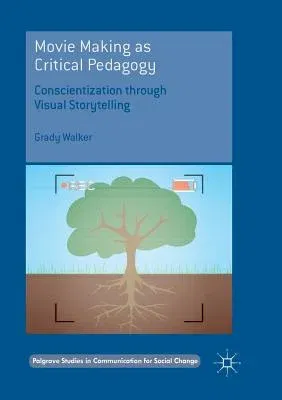Grady Walker
(Author)Movie Making as Critical Pedagogy: Conscientization Through Visual Storytelling (Softcover Reprint of the Original 1st 2018)Paperback - Softcover Reprint of the Original 1st 2018, 31 January 2019

Qty
1
Turbo
Ships in 2 - 3 days
In Stock
Free Delivery
Cash on Delivery
15 Days
Free Returns
Secure Checkout
Part of Series
Palgrave Studies in Communication for Social Change
Print Length
216 pages
Language
English
Publisher
Palgrave MacMillan
Date Published
31 Jan 2019
ISBN-10
3030072746
ISBN-13
9783030072742
Description
Product Details
Author:
Book Edition:
Softcover Reprint of the Original 1st 2018
Book Format:
Paperback
Country of Origin:
NL
Date Published:
31 January 2019
Dimensions:
21.01 x
14.81 x
1.27 cm
ISBN-10:
3030072746
ISBN-13:
9783030072742
Language:
English
Location:
Cham
Pages:
216
Publisher:
Weight:
290.3 gm

